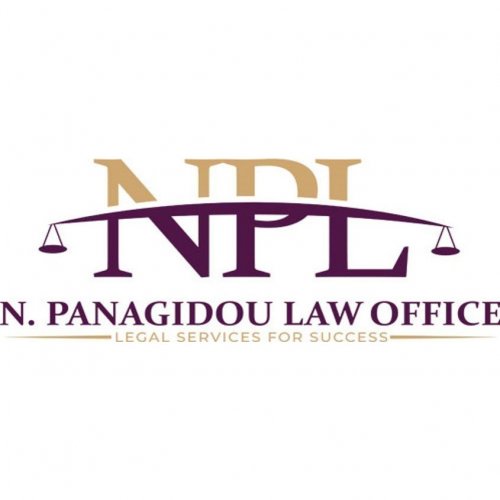Best Trusts Lawyers in Cyprus
Share your needs with us, get contacted by law firms.
Free. Takes 2 min.
Or refine your search by selecting a city:
List of the best lawyers in Cyprus
About Trusts Law in Cyprus
Cyprus is renowned for its modern and flexible trust legislation. Governed primarily by the Cyprus International Trusts Law of 1992, as amended in 2012, Cyprus offers one of the most attractive legal frameworks for international trusts. Trusts in Cyprus provide confidentiality, asset protection, and tax benefits, making them a popular choice for estate planning, asset protection, and wealth management. The law is particularly favorable to foreign nationals as it allows the creation of International Trusts provided the settlers and beneficiaries are non-residents.
Why You May Need a Lawyer
There are several situations where legal assistance may be necessary in the realm of Trusts in Cyprus:
- Establishing a Trust: The creation of a trust involves complex legal requirements and careful drafting to ensure it meets all the legal parameters and the intentions of the settlor.
- Managing or Administering a Trust: Trust administration requires keeping accurate books, filing taxes, and ensuring compliance with legal obligations.
- Modifying an Existing Trust: Legal counsel can assist in amending the terms of a trust, ensuring the modifications comply with the law.
- Litigation: Disputes may arise concerning the management, terms, or intentions of a trust, where legal representation might be necessary.
- Asset Protection: Legal advice can ensure that assets are protected within the framework of a trust from potential creditors or legal claims.
Local Laws Overview
The Cyprus International Trusts Law incorporates various key features that are relevant to trusts:
- Flexibility: Trustees have extensive investment powers and can act as their beneficiaries, provided they are not the sole beneficiaries.
- Confidentiality: The law ensures a high level of confidentiality as trust deeds do not need to be registered or disclosed publicly.
- Perpetuity: Cyprus trust law allows trusts to remain valid for an indefinite period.
- Asset Protection: Assets settled under a Cyprus trust are generally protected from claims initiated by foreign jurisdictions after a certain period.
- Taxation: Non-resident beneficiaries of a Cyprus international trust are not subject to income tax, capital gains tax, or any other taxes in Cyprus under certain conditions.
Frequently Asked Questions
What is a Cyprus International Trust?
A Cyprus International Trust is a trust set up under the Cyprus International Trusts Law which benefits from various benefits, including tax advantages, asset protection, and confidentiality.
Who can establish a trust in Cyprus?
Both individuals and legal entities can establish a trust in Cyprus. However, the settlor and beneficiaries must be non-residents at the time of creating the trust.
Can a Cyprus International Trust own shares in a Cyprus company?
Yes, a Cyprus International Trust can own shares in a Cyprus company, which can be advantageous for estate planning and business succession.
Are Cyprus trusts publicly registered?
No, there is no requirement to register a Cyprus trust publicly, preserving confidentiality for the parties involved.
How long can a Cyprus trust last?
Cyprus allows trusts to exist perpetually, with no maximum lifespan imposed, providing long-term asset protection and planning.
What are the tax implications for Cyprus trusts?
International trusts in Cyprus enjoy favorable tax treatment. Non-Cyprus residents typically do not incur Cyprus taxes on income or gains derived from outside Cyprus.
Can a trust be modified after it's established?
Yes, under certain conditions and with appropriate legal procedures, the terms of a trust can be altered, often requiring expert legal guidance.
What is the role of a trustee in Cyprus?
A trustee holds and manages the trust assets for the benefit of the beneficiaries, ensuring compliance with the trust deed and applicable laws.
Can Cyprus trusts be challenged?
The law provides strong protection against challenges, particularly concerning forced heirship claims or foreign judgments, after a specified period.
How can legal counsel assist with a trust in Cyprus?
Legal counsel can assist with structuring, management, compliance, dispute resolution, and modifications of trusts, safeguarding the interests of all parties involved.
Additional Resources
Consider reaching out to the following organizations and resources for further information on trusts in Cyprus:
- Cyprus Bar Association: Offers resources and referrals to legal professionals specializing in trusts.
- Cyprus Securities and Exchange Commission (CySEC): Provides access to regulated trustees and financial advisors.
- Local Law Firms: Many local law firms specialize in trusts and estate planning.
Next Steps
If you need legal assistance in trusts, consider the following steps:
- Consult with a Lawyer: Reach out to a lawyer specializing in trusts to discuss your objectives and legal needs.
- Research: Gather detailed information about your assets and intentions to effectively communicate them to your legal advisor.
- Documentation: Prepare any necessary legal documentation with the help of your lawyer to establish or modify a trust.
- Review and Plan: Work with your legal advisor to ensure compliance and protect your interests over the long term.
Lawzana helps you find the best lawyers and law firms in Cyprus through a curated and pre-screened list of qualified legal professionals. Our platform offers rankings and detailed profiles of attorneys and law firms, allowing you to compare based on practice areas, including Trusts, experience, and client feedback.
Each profile includes a description of the firm's areas of practice, client reviews, team members and partners, year of establishment, spoken languages, office locations, contact information, social media presence, and any published articles or resources. Most firms on our platform speak English and are experienced in both local and international legal matters.
Get a quote from top-rated law firms in Cyprus — quickly, securely, and without unnecessary hassle.
Disclaimer:
The information provided on this page is for general informational purposes only and does not constitute legal advice. While we strive to ensure the accuracy and relevance of the content, legal information may change over time, and interpretations of the law can vary. You should always consult with a qualified legal professional for advice specific to your situation.
We disclaim all liability for actions taken or not taken based on the content of this page. If you believe any information is incorrect or outdated, please contact us, and we will review and update it where appropriate.
Browse trusts law firms by city in Cyprus
Refine your search by selecting a city.
















